[Business Impact Analysis] [Detailed Business Processes] [CBF-1]

Detailed Business Processes
CBF-1 Residential Care and Shelter Operations
HopeHouse is a Singapore-based non-profit organisation dedicated to supporting youths-at-risk through residential care, education, and rehabilitation services.
As part of its mission to provide holistic support, counselling and psychological care play a central role in addressing the emotional and mental health challenges faced by its residents.
In the context of Business Continuity Management (BCM), the ability to sustain and quickly recover these support services during disruptions is vital—not only for operational stability, but also for safeguarding the well-being and rehabilitation progress of vulnerable individuals.
This chapter outlines the critical business function (CBF) of Counselling and Psychological Support, breaking it down into its core sub-functions (Sub-CBFs).
These sub-processes are essential in ensuring consistent therapeutic care, crisis response, and long-term recovery planning for HopeHouse residents, even during times of crisis or operational disruption.
Detailed breakdown of CBF-2: Counselling and Psychological Support for HopeHouse, with its associated Sub-CBFs (business processes) and relevant examples directly aligned with the organization's mission and operations, as seen on their website https://www.hopehouse.sg:
CBF-2: Counselling and Psychological Support
Ensuring residents of HopeHouse receive timely, professional, and trauma-informed psychological care and emotional support essential for rehabilitation, reintegration, and personal development.
Sub-CBF 2.1: Initial Psychological Assessment and Case Planning
- Description: Conduct psychological and emotional evaluations for all new residents upon intake to assess trauma, mental health conditions, risk factors, and counselling needs.
- Example: A youth referred by the Ministry of Social and Family Development (MSF) undergoes an initial assessment by a registered psychologist to determine therapy goals.
- Key Outputs:
- Resident psychological profile
- Personalised care and counselling plan
Sub-CBF 2.2: Individual Counselling Sessions
- Description: One-on-one counselling sessions conducted by qualified social workers, counsellors, or psychologists to support residents with trauma, emotional regulation, and behavioural issues.
- Example: A resident coping with abandonment issues attends weekly counselling sessions facilitated by HopeHouse’s in-house counsellor.
- Key Outputs:
- Progress notes
- Updated treatment objectives
Sub-CBF 2.3: Group Therapy and Peer Support
- Description: Facilitation of structured group therapy sessions to build trust, improve social skills, and foster peer support among residents.
- Example: A weekly support group where residents discuss coping strategies and life skills in a safe, moderated setting.
- Key Outputs:
- Group session summaries
- Peer progress evaluations
Sub-CBF 2.4: Crisis Intervention and Emotional Stabilisation
- Description: Immediate psychological support and intervention for residents experiencing acute emotional distress, self-harm risks, or behavioural crises.
- Example: When a resident exhibits signs of self-harm, the staff activates a crisis intervention protocol involving the on-call counsellor.
- Key Outputs:
- Crisis incident reports
- Emergency response follow-up
Sub-CBF 2.5: Progress Monitoring and Reassessment
- Description: Regular reviews of each resident’s emotional and psychological progress, with adjustments made to their care plans as needed.
- Example: Quarterly case reviews with social workers, psychologists, and resident caregivers to assess progress and determine next steps.
- Key Outputs:
- Case review documentation
- Updated counselling goals
Sub-CBF 2.6: External Referrals and Specialist Coordination
- Description: Coordination with external psychological specialists, hospitals, or community mental health services for complex or long-term mental health issues.
- Example: Referring a resident showing signs of major depressive disorder to a government-funded psychiatric unit for clinical evaluation and medication.
- Key Outputs:
- Referral records
- Specialist reports and feedback
Sub-CBF 2.7: Post-Care Emotional Support and Reintegration Planning
- Description: Emotional and psychological support during and after the resident’s transition back into the community or family environment.
- Example: Providing ongoing tele-counselling for a resident who has recently reintegrated but continues to struggle with anxiety.
- Key Outputs:
- Post-care engagement logs
- Reintegration readiness assessments
Below is the detailed table format for CBF-2: Counselling and Psychological Support and its associated Sub-CBFs for HopeHouse:
CBF-2: Counselling and Psychological Support
Ensuring residents of HopeHouse receive timely, professional, and trauma-informed psychological care and emotional support essential for rehabilitation, reintegration, and personal development.
|
Sub-CBF Code |
Sub-CBF Name |
Description |
Examples Related to HopeHouse |
Key Outputs |
|
2.1 |
Initial Psychological Assessment and Case Planning |
Conduct psychological evaluations upon intake to identify trauma, mental health conditions, and create counselling plans. |
A youth referred by MSF undergoes an assessment by a registered psychologist. |
- Resident psychological profile - Individual care and counselling plan |
|
2.2 |
Individual Counselling Sessions |
One-on-one therapy to address emotional trauma, behavioural challenges, and personal development goals. |
A resident receives weekly counselling for abandonment issues. |
- Counselling session notes - Updated therapy goals |
|
2.3 |
Group Therapy and Peer Support |
Facilitated sessions to foster peer connection, trust-building, and emotional sharing among residents. |
Residents engage in weekly group discussions about coping skills and mutual support. |
- Group session logs - Peer interaction assessments |
|
2.4 |
Crisis Intervention and Emotional Stabilisation |
Immediate emotional support for residents during emotional or behavioural crises. |
A resident at risk of self-harm is stabilized by on-call counsellors following crisis protocols. |
- Crisis reports - Post-crisis evaluations |
|
2.5 |
Progress Monitoring and Reassessment |
Periodic review of each resident’s emotional growth and adjustment of treatment plans. |
Quarterly case reviews are conducted with caregivers, counsellors, and psychologists. |
- Case review reports - Revised therapy plans |
|
2.6 |
External Referrals and Specialist Coordination |
Engagement with external mental health professionals or hospitals for complex mental health issues. |
A resident with major depression is referred to a public psychiatric clinic. |
- Referral documentation - External specialist reports |
|
2.7 |
Post-Care Emotional Support and Reintegration Planning |
Continued emotional support for residents reintegrating into family or society. |
A reintegrated youth receives monthly tele-counselling to cope with anxiety. |
- Post-care contact logs - Reintegration readiness assessments |
Summing Up ...
The provision of counselling and psychological support is not just a service at HopeHouse—it is a lifeline for many youths undergoing transformative and often emotionally challenging life transitions.
As such, maintaining the continuity of these services is paramount to the organisation’s mission and the long-term success of its residents.
By identifying and documenting the Sub-CBFs of this critical function, HopeHouse can better prepare for potential disruptions, reduce operational risks, and ensure that no resident is left without the psychological support they need.
This BCM approach strengthens both the resilience of the organisation and the emotional safety net it provides, ensuring that healing and growth continue even in the face of adversity.




![[BCM] [SC] [BIA] MBCO Corporate MBCO](https://no-cache.hubspot.com/cta/default/3893111/0be0c57e-237f-4076-a3df-eb6ed5617050.png)
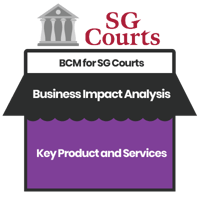
![[BCM] [SC] [E3] [RAR] [T1] List of Threats](https://no-cache.hubspot.com/cta/default/3893111/36925b9f-7e34-450f-b06d-4aed8e2a4ceb.png)
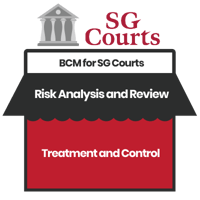
![[BCM] [SC] [E3] [RAR] [T3] Risk Impact and Likelihood Assessment](https://no-cache.hubspot.com/cta/default/3893111/dd636430-8d65-4445-a42d-a3c67f57e9f5.png)
![[BCM] [SC] [E3] [BCS] [T1] Mitigation Strategies and Justification](https://no-cache.hubspot.com/cta/default/3893111/b4270f51-db59-4e76-8516-7a2be65803b2.png)
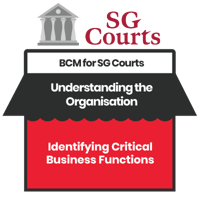
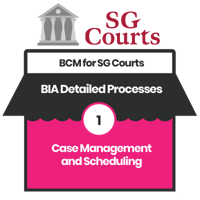
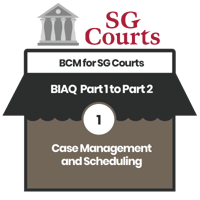
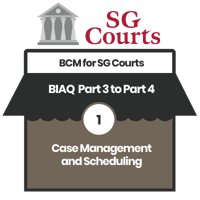
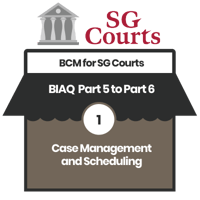
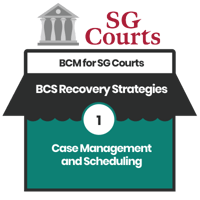
![[BCM] [SC] [E3] [BCS] [T3] [CBF] [1] Minimum Resources Required during a Disaster](https://no-cache.hubspot.com/cta/default/3893111/6de21368-9870-4c29-a4be-068e4e6bc30c.png)
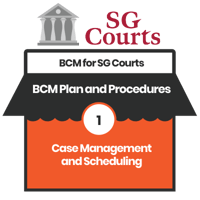


![Register [BL-B-3]*](https://blog.bcm-institute.org/hs-fs/hubfs/hub_generated/resized/19a8306f-6b76-45ff-8585-95111f393aeb.png?width=200&height=56&name=19a8306f-6b76-45ff-8585-95111f393aeb.png)



![FAQ [BL-B-3]](https://blog.bcm-institute.org/hs-fs/hubfs/hub_generated/resized/9b7f5669-8ad6-450b-a98f-5f5d49ebfc8e.png?width=150&height=150&name=9b7f5669-8ad6-450b-a98f-5f5d49ebfc8e.png)
![Email to Sales Team [BCM Institute]](https://blog.bcm-institute.org/hs-fs/hubfs/hub_generated/resized/83ae9ad3-affc-416e-8f51-64218d6d98f2.png?width=100&height=100&name=83ae9ad3-affc-416e-8f51-64218d6d98f2.png)





